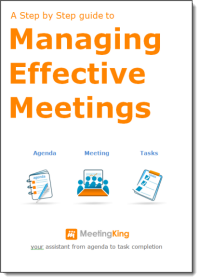 Sales calls are the lifeblood of any sales person’s job. Handling sales calls well means the difference between securing business for your organization and failing to close a single deal. Getting organized in advance and prepared for important sales calls can help sales people to meet their targets and bring on more business for the organization, through just taking a few simple steps to achieve success. It is all in the organization that frames the sales call.
Sales calls are the lifeblood of any sales person’s job. Handling sales calls well means the difference between securing business for your organization and failing to close a single deal. Getting organized in advance and prepared for important sales calls can help sales people to meet their targets and bring on more business for the organization, through just taking a few simple steps to achieve success. It is all in the organization that frames the sales call.
Being prepared helps to seal the deal
Being prepared for important sales calls helps the salesperson to present a well-polished image of the organization, sending a subconscious message to the client that the company is professional and worth considering doing business with. It can go a long way to helping the sales person to seal the deal. In addition, being prepared helps the sales person to feel confident. This in itself presents a picture of the company that tells the client they should consider what that person has to say. On the other hand, when a client is talking with a salesperson who makes comments like, “Hang on for a minute please, I am just finding the right document now,” it fills them with annoyance. After all, clients are busy people too. They do not have time to wait while the sales person digs out documents that should have been to hand before the call even started. This is a big turn off for a potential client, who may well say in return, “Why don’t you call me back when you are a bit better organized?” and then never answer the phone again to the sales person.
The need to keep track of key points
An easy mistake to make is forgetting certain aspects of what was agreed during the call. Forgetting important points and failing to act on them after the call does not create a great first impression of the company for the client. Instead it sends a message to that client that the company does not keep its promises, and that they will maybe say anything to close the deal. This can lead to clients back tracking and reneging on what they agreed to during the sales call. Sales people need to keep track of important points and actions as they arise during the meeting on a to do list that does not get lost under a pile of papers or forgotten the minute the call is over.
Follow up closes the deal
When salespeople do not follow up, sales opportunities can be lost. In the meantime a competitor may also be making a sales call, following up and stealing the business away. This means a timely follow up call or email with the client is critical to jumping that final hurdle and securing the business for the organization. Keeping track of the optimal time to call to follow up should be a clearly marked task in the sales person’s to do list. The follow up reminds the client that the company exists and that they need to make a decision on what to do regarding the product or service. It sets the sales person in pole position in the mind of the decision maker once again.
An organized work flow helps meet sales targets
MeetingKing provides tools that can help sales people with all of these different aspects of the sales call. Setting an agenda in advance of the meeting allows the sales person to get together all of the relevant documents before the call and plan out what to say, providing that all-important first impression that can win the business. The tasks component of MeetingKing ensures that the salesperson can assign tasks to him/herself as the meeting is in progress to make sure that nothing is forgotten. Reminders can also be set within the tool to ensure a timely follow up. This structured and organized workflow can help salespeople to meet targets just by having all the right pieces of the puzzle in place at the right time to close that deal.


